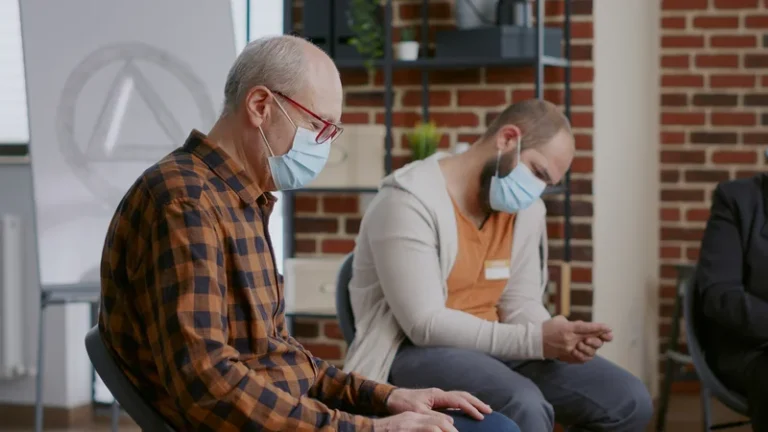The Healing Power of Sharing Your Story

Unfortunately, there’s still a lot of stigma surrounding addiction being a choice or something that happens to weak people. It’s important to never bring in this type of negative language when sharing your stories. You can express shame for some of the choices you made but with an understanding that your addiction had a hold on you when you made those choices. Remember — if you guilt or blame when telling your addiction story, you’re projecting the same feelings to others in the room. Personal stories have the power to transform attitudes, shape behaviors, and ignite meaningful actions in addiction recovery. By sharing their stories, individuals contribute to the larger narrative of addiction recovery, offering hope, support, and encouragement.
What time does Diablo 4 season 5 start?
- Some observers might not relate to the ease with which you “quit your job” to pursue treatment, so they could tune out and miss key points in your story.
- You shouldn’t go up and share your story if you don’t feel you’re ready to.
- Storytelling is a big part of healing for those dealing with addiction.
These stories serve as a reminder that recovery is possible and that there is support available. Friends and family members can make all the difference in a person’s recovery process. Learn how to support your friends and loved ones as they look for help with their mental health problems. These stories, whether ancient or contemporary, offer a framework for understanding and overcoming trauma. When more people share their experiences, the conversation around addiction becomes more open and inclusive.

LOOK: Shifty WR shows off superb route-running at Chiefs training camp
- By sharing your journey, you can inspire others to take the first step toward recovery and help create a sense of solidarity among those battling addiction.
- In addition to the emotional benefits of social connection, accountability is essential in addiction recovery.
- It is important to balance honesty and inspiration in order to effectively convey the challenges and triumphs of recovery.
- An evening dedicated to sharing experiences of mental illness, both of recovery and adversity.
- These stories provide relatable accounts, education, empathy, and motivation to the recovery community.
By telling how your addiction impacted your life and the lives of your loved ones, you show others that recovery is possible and that they are not alone. They offer many rehab programs that can be tailored to each individual. By sharing recovery stories in places like AA or Indiana Center for Recovery, people can motivate change in themselves and in others who are facing similar struggles.

The Benefits of Sharing Your Recovery Story
For the storyteller, sharing their story affirms what they have gone through and holds them accountable for staying sober. It also fosters emotional healing, develops their relationship with oneself, and provides an opportunity for personal growth. For the audience, sharing your story in recovery listening to personal stories offers education, inspiration, and motivation. It lets them know they are not alone in their struggles and provides a sense of hope for their own recovery. It breaks the feeling of being alone and reinforces commitment to sobriety.
Hexcrawl Toolbox
When sharing your story, it is important to be mindful of how you are presenting it. Are you making it seem like using drugs was fun and exciting? It is important to be honest about the reality of addiction and recovery. Addiction is a serious disease that can have devastating consequences, and recovery is a hard but incredibly rewarding journey.

Omaha storm recovery: Keystone neighborhood among hardest hit areas in the city
Randal Lea, our Chief Community Recovery Officer is a licensed addictions counselor with 30 years of clinical and administrative experience. There are a number of ways you can get your message across, and you may feel more comfortable using some mediums than others. Below are a few considerations to help you learn how to tell your story in a compelling way. When https://ecosoberhouse.com/ talking about your new job, focus on your newfound reliability rather than your material gain. When discussing new love, focus on your newfound emotional stability rather than the physical attractiveness of your partner. Many of us have tried to quit drinking or abusing drugs on our own, only for some outside influence to finally push us in the right direction.
Navigating the Path to Recovery: Understanding Drug Addiction Treatment Options
Big Issue Recruit is a specialist job service which supports people with barriers to work and helps them get into employment with the help of job coaches. “When Scott’s accident happened, it changed my life as well,” Hayley said. Scott and Hayley Pearshouse, a couple who also spoke at the event, described how their lives changed after Scott had a brain injury. “Once you have a brain injury, if you are lucky enough to survive it, what you are left with can alter the rest of your life,” the 37-year-old said. A Grade 2 ankle sprain is “a partial tear of the ligament” which results in more pain, swelling, bruising, and greater difficulty walking, says Ishibashi.
You may discuss the newfound joys in your life, such as the manner in which embracing the First Tradition has put an end to your previous state of isolation. There are also many other benefits you may have experienced, such as new jobs, a new love, and repaired relationships with friends and family. When you reach this stage of your story, you may choose to discuss many things. If you feel that you have experienced such a thing, you may consider this moment to constitute the beginning of this section. One quick note should be made for those whose stories include a relapse.
Join the TAR Network’s 2024 Virtual May Summit on Healing From Toxic Abusive Relationships
But I did go there to see The Manic Monolgues, a storytelling project I assisted with. It’s important to know that sharing involves both talking AND listening. There are also many benefits that come with listening and being receptive to the stories of others in recovery.

Commenti recenti